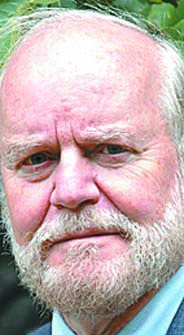Quid De Cogitatione? Glenn Rose
Merriam-Webster defines a politician as “a person experienced in the art or science of government, especially: one actively engaged in conducting the business of a government.” It also offers “often disparaging: a person primarily interested in political office for a selfish or other narrow, usually shortsighted reasons.”
A dictatorship has no recourse for the governed when a “politician” is clearly only interested in his or her own interests. The dictator doesn’t need to understand the art of governing, let alone implement policies that the majority wants.
A dictator need only say, “This is what I want!”
That’s what our founders wanted to avoid when they invented our democracy.
They created a government with checks and balances that allowed divergent needs and wants of differing regions, parties, and people to resolve conflicts legally and peacefully.
That system failed in the 1860s and came under attack again following the 2020 election.
That system also creates those politicians that many Americans vilify: ones who promise a policy or stand that, once in office, they must bargain and compromise for.
The recalcitrant, unyielding politician might get reelected, but seldom gets much done for any minority position she or he favors when locked into an inflexible ideology.
Politicians of character learn the art of peaceful compromise.
When voting for a candidate, we consider that candidate’s position on the many policies that concern us individually.
But if we fail to consider that candidate’s character, we are ignoring the most important thing about that person.
Policies can be corrected and even rescinded when they are seen to be inefficient or unfair.
Our country ended slavery and the subsequent racial discrimination that followed. Even the Eighteenth Amendment to the Constitution that prohibited alcohol was repealed when it was recognized as a bad idea.
Policies are strengthened, weakened, or abandoned when it becomes evident that they conflict with the will of the people or are poorly conceived.
But character is not altered when a person ascends to office, either by election, appointment, or subterfuge. That character arrives with every office holder. We can expect their principles will define their service, whether to the people and the office or just to themselves.
Jerry Falwell Jr., then president of Liberty University, declared during the 2016 competition for the Republican presidential nominations, “We’re not electing a pastor-in-chief. We’re electing a commander-inchief, and we can’t expect our commander- in-chief to have the same qualities as our pastors.”
Falwell was more interested in policy than character. Why shouldn’t we demand the same character that we expect of a pastor for a politician or a spouse or a child or a friend?
Ironically, the powers-that-be at Liberty didn’t think their “commander- in-chief,” Jerry Falwell Jr., was likewise exempt from scrutiny, and forced him to resign over a sex scandal that exposed him as a hypocrite to the principles and standards he demanded for others.
We all may have different principles and standards for what we define as “good” character.
My concept of good character comes from the scruples I learned in Sunday school as a youngster. Those were reenforced by the standards of behavior that were expected of me by my parents, grandparents, and teachers.
Bullies, liars, and narcissists are not to go unchallenged. Anyone allowed to exploit and cheat another person will only feel free to exploit and cheat every person.
We all have a responsibility to protect the vulnerable.
I know there are people not so inclined. However, I’m bolstered by those coming forward to express their disapproval for those who think they exist outside the bounds of acceptable ethics. People like Liz Cheney and her father, former Vice President Dick Cheney. People like Mitt Romney, the John McCain family, Denver Riggleman, Adam Kinzinger, and George Bush. Politicians whose policies I may differ with, but whose heroic defense of our Constitution I respect. Sadly, our own governor and congressman are not among them. Our congressman voted against ratifying the vote of the Electoral College that confirmed the winner of the 2020 presidential election and mandated a peaceful transfer of power.
Equally saddening are the “religious” leaders, the Deacons of Deception, Doom, and Damnation, who use the holy scriptures like an encyclopedia: as only a reference book for passages that seem to prop up their attacks on any lifestyle or belief that conflicts with their narrow definition of acceptable conduct, while ignoring the scriptures’ broader message of love, kindness, and compassion.
They endorse a man who clearly loves himself more than anyone or anything else and rewards only those who express their adulation and complete fealty.
They’ve constructed their pulpit with low price materials that lack the strength to stand against critical thinking.
These Deacons lack unselfish character, seeking to lead their trusting followers into a dark world of bigotry.
Today marks twenty-three years since the terror attacks on our country. In New York 343 firemen of the F.D.N.Y. lost their lives in their selfless effort to save the lives of people they never met.
Like thousands of American police, rescue personnel, and service men and women they put their lives on the line for others.
What a contrast in character!

.jpg)


